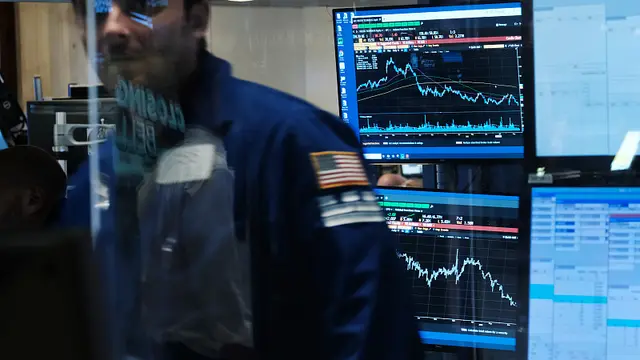The U.S. Federal Reserve's (Fed) determination to fight inflation, even if it may send the economy into recession, was reiterated by Fed Chair Jerome Powell's speech at the Jackson Hole symposium on Friday. Following Powell's address, stock prices slid.
With such a hawkish stance, the U.S. financial market will likely face more turmoil in the coming weeks.
U.S. stocks had recovered some of their earlier losses since early August, mainly driven by expectations that inflation will soon peak. However, Powell emphasized that a single month's improvement is not enough.
In other words, Powell is keen to correct some market participants' expectations on the Fed's monetary policy outlook, and the Fed will likely act much more aggressively than many investors currently expect. The Fed sees little reason to stop or delay the policy tightening when the most recent non-farm payroll report revealed that the country added over 500,000 jobs in July and inflation is running way beyond the Fed's two percent target.
Some market participants said the central bank can do little to solve the supply chain shortage. However, monetary policy can affect commodity prices to a certain extent, which is one of the main reasons behind rising inflation.
As long as the Fed keeps its hawkish stance, the dollar isn't likely to drop much further, a firm greenback has always been seen as a negative factor to commodity prices. For example, the correlation between the dollar index and crude oil prices reached 0.76.
The decline in gas prices, primarily driven by the softer crude prices, was the major factor that eased some of the inflation pressures in the U.S. The Fed's persistent hawkish stance should be able to limit the gains in oil prices due to a strong dollar outlook, even with the oil supply remaining tight.
On the other hand, the dollar was supposed to appreciate more amid hawkish Fed comments, with a drastic sell-off in equities encouraging traders to buy safe-haven assets, including the dollar. However, the dollar gained only 0.3 percent on Friday, indicating that there was little buying interest. The limited gains in the dollar showed that the current Fed policy path will ultimately bring the U.S. economy into recession.
The Fed's aggressive rate hikes have always been followed by economic recessions in the past, with almost no exception. In addition, the current pace of tightening is considered to be the most aggressive in the past 40 years. Based on Powell's speech, the Fed has prioritized curbing inflation before all else for the moment, even at the price of recession and higher unemployment.
Divergence between the stocks and bonds outlook
Powell said that the Fed is deliberately moving its policy stance to a level that will be sufficiently restrictive to return inflation to two percent. According to the Taylor Rule, an inflation target of two percent necessitates a Fed policy rate of 9.34 percent.
Though we don't expect the Fed to raise the rates to this level, the model expresses the view that the Fed is still far behind the curve in its tightening path, and the central bank is rushing to catch up. Following the Jackson Hole symposium, traders are expected to re-price assets ranging from stocks to bonds.
For U.S. equities, they are likely to give up much of the gains built in recent months, and are likely to fall to the lowest level of the year since mid-June. The Fed's aggressive policy outlook not only increases the borrowing costs of many companies, but also worsens the near-term economic outlook. The yield curve could continue to invert, indicating that the economy will deteriorate, which would be bad news for the stock market.
The real problem with the stock market is that the Fed does not expect to rescue the slowing economy even if upcoming economic data points to further economic weakness. Powell said, "the historical record strongly warns against prematurely loosening policy." This means that the Fed will probably have to keep its policy tight for a while.
While U.S. equities are likely to remain volatile, portfolio managers may try to diversify their investments by buying safer bonds, especially those with longer terms, which usually reflect traders' choices about the economy's future.
Similar to the dollar's reaction to Powell's hawkish speech, the 10-year U.S. bond yield rose only two basis points to 3.041 percent. The modest gains in 10-year Treasury notes reflect the fact that traders believe the Fed policy is on track to send the economy into recession, even with a potential much higher policy rate.
At the same time, as one of the major safe haven assets, U.S. bonds have always outperformed when volatility surged in the financial market. The VIX index, a reliable fear gauge, rose 17.4 percent on Friday, the most in more than two months. If risky assets such as stocks continue to fall, even if the Fed remains hawkish, the 10-year U.S. bond yield may fall below three percent once more.
(CGTN)
 简体中文
简体中文

